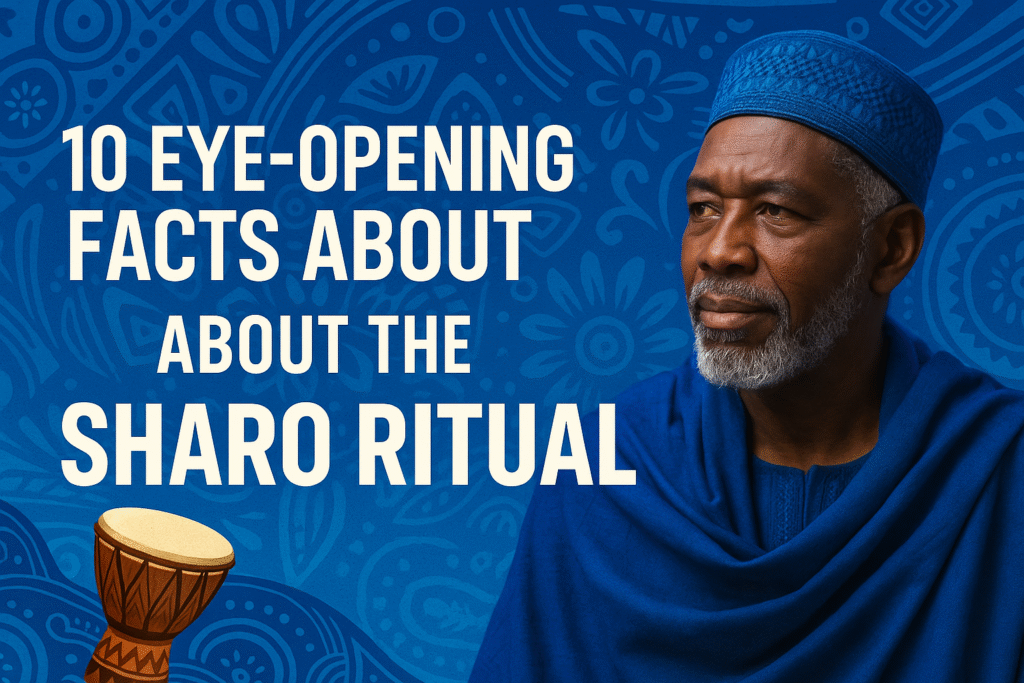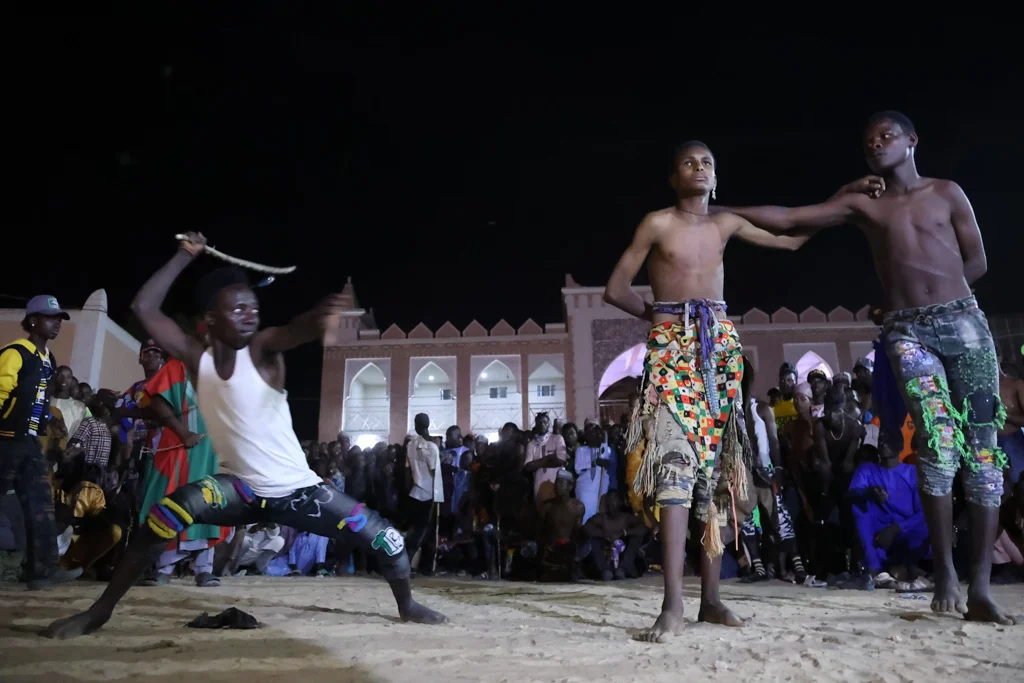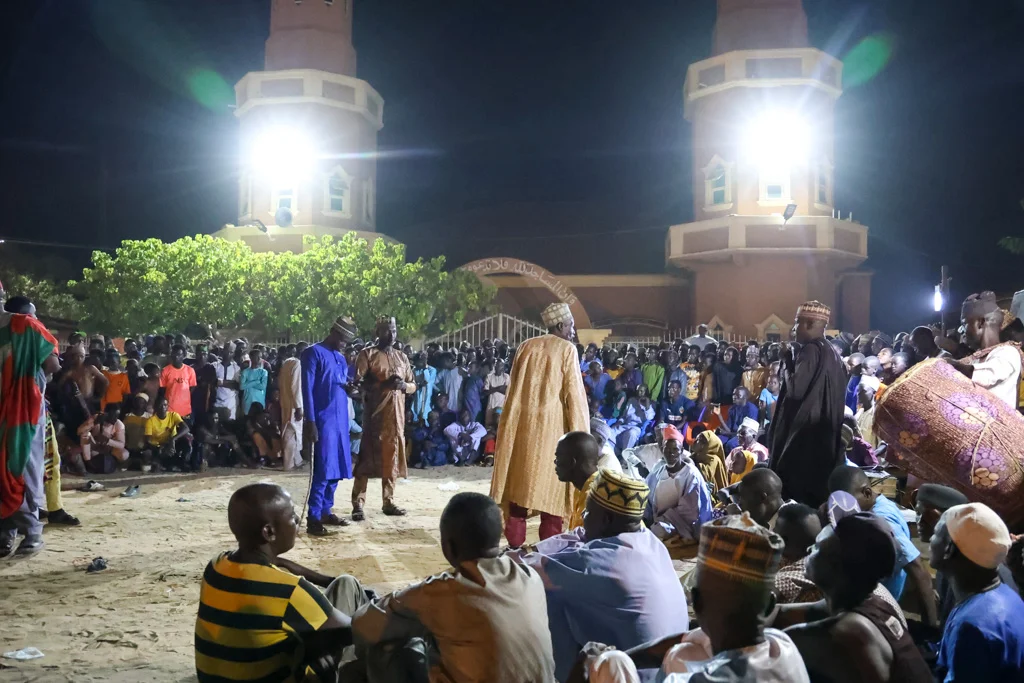10 Eye-Opening Facts About the Sharo ritual (A Powerful Storytelling Guide)
Dust hangs in the warm air as drums gather a crowd. Vendors pack up grains while elders settle onto mats. Young men, bare-chested, step into a ring. An official raises a hand; the drummers pause, then strike a thunderous beat. This is where the Sharo ritual begins for many Fulani communities in northern Nigeria—a public test of character, courage, and self-control.
The scene is dramatic, yes, but it’s also carefully organized: there are rules, referees, and expectations everyone understands. What looks like spectacle from the outside carries deep social meaning inside the community.
What This Rite Is & Who Practices It
What Is the Sharo ritual?
Among many Fulani (also called Fula or Fulbe), this rite is a formal ordeal of caning or whipping that measures a young man’s endurance and composure. Referees oversee the contest; onlookers sing; participants are expected not to flinch or cry.
Its core purpose is to test bravery and readiness for adult roles, sometimes linked to courtship and marriage decisions. What matters most is not brute strength but calmness and control.
Language, Values, and Identity (Pulaaku)
Fulani culture emphasizes pulaaku, an unwritten code stressing patience, modesty, discipline, and courage—virtues on full display during the rite. These values explain why participants sing proudly, stand tall, and hide pain: the behavior itself communicates character to family and potential in-laws.

When and Where It Happens (Seasons & Settings)
Events often take place in open spaces—market squares, fields, or village centers—timed to important moments in the year. Two common seasons are:
- Around the dry-season harvest period.
- During the Muslim festival of Eid-el-Kabir.
The rite is most closely associated with Fulani communities in northern Nigeria, with some occurrences reported near the Niger border.
Ceremonial Flow: Drums, Dancers, Referees
A typical sequence includes:
- Opening performances: drummers, singers, and dancers.
- Entrances: unmarried young men are introduced, often escorted by peers; an elder or official acts as referee.
- The ordeal: opponents take turns delivering controlled strokes; the receiver must remain composed.
- Recognition: visible calm and resilience earn praise; scars may be treated as marks of honor.

The Implements (Whips, Sticks, Rules)
Implements are usually flexible sticks or whips designed to sting and welt rather than to maim. The person delivering blows aims for controlled strikes, while the recipient braces, sings, or chants to steady himself.
A referee and elders monitor fairness and safety, pausing contests if a participant falters or if wounds look too serious. In some places, the Sharo ritual is staged at night under bright lamps to manage heat and crowd flow.
How Pain Is Managed (Stoicism, Songs, Support)
Participants prepare physically and mentally. Common techniques include:
- Breathing and pacing to absorb stings.
- Songs or chants to project confidence.
- Social backing: friends and relatives offer moral support and first aid.
Stoicism is central: showing fear undermines the rite’s purpose. The Sharo ritual rewards restraint and self-control rather than aggression.
Courtship and Marriage Pathways
Many accounts connect the ordeal to marriage negotiations. A suitor’s ability to endure may improve his chances with the bride’s family, and in competitive situations he might be compared to a rival.
Not all Fulani communities follow this pattern, and not every marriage involves the ordeal. Still, the Sharo ritual is often discussed as a path toward proving maturity for family life.
Risks, Safety, and Community Safeguards
Even with referees and elders present, risks exist—welts, cuts, and infection. Communities try to manage safety by:
- Limiting rounds.
- Controlling whip style and striking zones.
- Stopping when a contestant falters.
- Treating wounds afterward.
In modern times, some suggest stronger first-aid presence and protective steps at large gatherings.
Variations Across Communities
Practices differ:
- Occasion: some tie it to marriage, others to festivals.
- Setting & timing: day vs. night, market vs. field.
- Rules: strike counts, pauses, referee signals.
- Symbolism: for some, eligibility for marriage; for others, general proof of manhood.
The Sharo ritual is not identical everywhere—it reflects local tradition and interpretation.
Misconceptions vs. Documented Facts
- “It’s only violence.” To insiders, it’s a discipline test, not a fight.
- “Every Fulani does it.” Not true—practices vary widely.
- “It always decides marriage.” It sometimes does, but not universally.
- “It’s new.” The practice has long historical roots.
Changing Attitudes: Law, Religion, and Modern Life
Public discussion in Nigeria reflects mixed views. Some communities continue the practice, others restrict it, and urban areas often move away from it. Religious leaders and modern legal frameworks also influence how and when the Sharo ritual appears today.
While safety and health concerns are more openly discussed, community pride and cultural continuity still sustain it in some regions.
Cultural Respect & Ethical Tourism
Visitors should approach with respect:
- Ask before photographing.
- Follow event organizers’ directions.
- Keep a respectful distance.
- Avoid sensational descriptions.
This isn’t a staged show; it’s a community rite of deep meaning.
Quick Cultural Glossary
- Pulaaku: Fulani code of conduct.
- Fulfulde: the Fulani language.
- Semteende: modesty.
- Munyal: patience/endurance.
- Hakkiilo: prudence/common sense.

FAQs
Q1. Is the Sharo ritual still practiced today?
Yes, some communities still hold events, though format and oversight vary.
Q2. Is it only about marriage?
Not always. Sometimes it influences marriage decisions, but it also tests general manhood.
Q3. What values does it highlight for the Fulani?
Patience, courage, modesty, and discipline—core elements of pulaaku.
Q4. When do events usually happen?
During the dry season and the Muslim festival of Eid-el-Kabir.
Q5. How is safety handled?
Referees oversee bouts, halt them if needed, and communities provide first aid.
Q6. Are all Fulani communities involved?
No. Some practice it, others don’t. Traditions vary.
Conclusion: Culture, Change, and Continuity
From the first drumbeat to the final cheer, the Sharo ritual expresses a way of measuring maturity in certain Fulani communities. Its meanings—duty to family, command over self, readiness for adult roles—are rooted in values many Fulani hold dear.
At the same time, modern life keeps reshaping the conversation. Safety, legal norms, and evolving attitudes all influence its present and future. Understanding both its cultural logic and the debates around it helps us move beyond shock toward respect and context.
read also: 5 Miraculous Facts About Iwa Akwa You’ll Find Unbelievable




